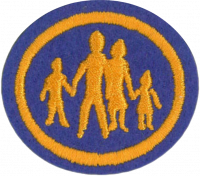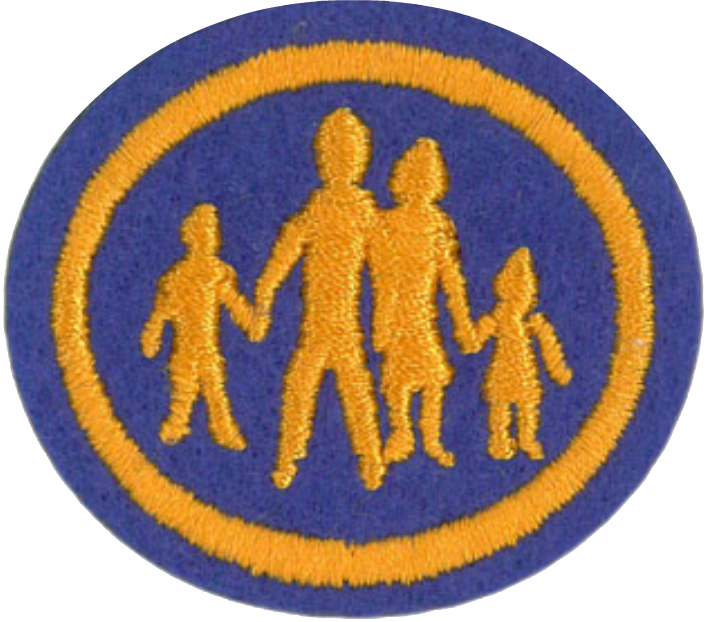AY Honor Family Life Answer Key used by North American Division
1
1a
• Husband and Wife
• Husband
• Wife
• Parents
• Children
Bible
Ephesians 5:22-6:4, Colosians 3:18-21, and 1 Peter 3:1-7 have instruction for the family members:
- Wife
- Submit to your husband.
- Husband
- Love your wife.
- Children
- Obey your parents.
- Parents
- Do not exasperate your children. Train them in the ways of the Lord.
1b
2
3
Consult the answers to the Housekeeping and Laundering honors as found in the Household Arts category for instruction.
4
Consult the answers to the Child Care honor in the Spiritual Growth, Outreach, & Heritage category for detailed instruction.
5
Living with your parents
If you are not living on your own, you will need to talk to your parents about this. Before you do though, see how much of the list you can make up yourself. Then talk to them and see if they can add (or subtract) anything from it.
Your responsibilities will vary with your situation, but you almost certainly have some influence on how much your family spends. If you are in the habit of wasting food, or overeating, you can address that yourself. Turn out lights when you leave a room. Close the door when you enter or leave your home so that your family does not pay to heat or air condition the front yard.
Living on your own
If you are living on your own, you should already have a pretty good idea of what you spend money on. Think about this and write it down. If you have never done it before, it can be an enlightening experience. Go through your checkbook and any credit card statements.
Your responsibility to the family finances is nearly total, though it may be shared with a spouse. Make out a budget and stick to it. Do not spend more money than you make, and if you find yourself doing this, look for areas where you can cut back (adjust your thermostat, avoid restaurants, and do not make impulse purchases).
6
Think of the times you can remember each family member laughing or smiling. What was going on then? Ask your family members what they enjoy the most and write that down too. You can also ask them what three things they would like to have if they were stranded on a desert island (supposing it already had everything on it they'd need for survival). Do not accept answers like "a boat and two oars." You're looking for the things they like to do.
7
Preschoolers
Preschoolers love to sing songs and to do things. They like to move around. They understand things that are concrete and have difficulty understanding abstractions. Preschoolers tend to believe whatever anyone tells them, so you must be careful to present only the facts. It's OK to simplify them, but whatever you tell them must be true. Their worship should therefore include lots of songs, action, and concrete lessons that are easy to understand. The length of the worship should be short and have many components.
Juniors
Juniors are the ages from 10 to 12. Juniors have sharp minds and can quickly memorize things. Juniors tend to believe whatever they are told by trusted adults. They often do not attempt to apply the lessons to their own lives on their own - the application should be presented as well as the lesson. Going through scenarios works well for this age group.
Teens
Teens are at an age where they begin to understand abstractions and internalize spiritual lessons. They look for ways to apply the things they learn to their own lives. Teens tend to not believe anything anyone tells them unless it holds up to their own scrutiny. Though this may sound like a bad thing, the opposite is true. It is a necessary step for them in taking control of their own spiritual lives. They begin to rely on their own relationship with God instead of on their parents relationship with Him. Since they are beginning to discover how Jesus/Christianity makes sense to them any family worships that allow them to express that expanding self-awareness will likely be seen as relevant and applicable or real. Their worship can include the abstract, and they should be encouraged to personalize the lesson. Family worship for teens should respect their time commitments to school, sports, and other activities that fill their lives.
8
9
Specific areas to consider are sedentary activities versus physical activities. You cannot replace all sedentary activities with physical ones, but most families can improve in this area.
Another area to consider is television viewing. Watching TV does not require any interaction between family members. Instead, everyone's eyes are glued to the tube, and no one is talking to another. If someone does talk during the program, it is often met with glares or a "be quiet!" It is far better to engage in activities that require interaction among family members, such as board games.
Do your family's activities require a lot of driving to and fro from one place to another? This is often the case in a large family where one child has ballet, another has soccer practice, and another has piano lessons. Shuttling people from one event to another can be stressful! Why not suggest activities that everyone can enjoy instead of activities that only one person does? It's OK to have personal interests, but be careful that your family activities don't reduce the parents to little more than chauffeurs and taxi drivers.
What other improvements can you think of?
10
A possible list might include:
- Talk to them!
- Bring them cookies.
- Take their dog for a walk.
- Invite them to our home for a visit.
- Cut their grass without being asked (but ask them first out of respect).
- Rake their leaves.
- Do not park in their assigned parking spaces.
- Keep your own place looking nice.
- In snowy weather:
- Shovel their sidewalk or driveway (or help them do this).
- Dig out their car.
- When they are away from home:
- Offer to care for their pets.
- Offer to get their mail and newspapers.
- Keep an eye on their place.
11


